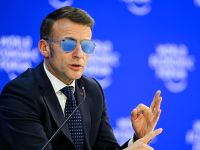After a long stalemate following the Security Council’s approval of resolution 1284 on 17 December 1999 and Iraq’s rejection of it (MEES, 20 December 1999), talks on Iraqi sanctions start once more in New York this week between an Iraqi delegation headed by Foreign Minister Muhammad Sa'id al-Sahaf and a UN delegation headed by Secretary-General Kofi Annan.
Simultaneously, US Secretary of State Colin Powell and several Middle East leaders are holding talks in the Middle East, with Iraq heading the agenda.
There is general agreement among all concerned that the sanctions on Iraq are eroding quickly and that international support for the continued targeting of Iraq is fading fast. However, opinions differ sharply about what to do next.
The current negotiations are taking place against the background of two new developments.
First, there is a new administration in the White House. This means that the Americans are reviewing their Iraq policy, which Mr Powell will be discussing this week with the leaders of Israel, the Palestinian Authority, Egypt, Jordan, Syria, Saudi Arabia and Kuwait.
The US is seeking to regain the initiative, reportedly with new “smart sanctions” that target the Iraqi leadership rather than the civilian population and ensure that Baghdad does not develop weapons of mass destruction or threaten its neighbors.
Second, the Americans face a more confident Iraq. The Baghdad regime has proved that it can not only survive political pressure and military attacks but it can also take the initiative to erode the sanctions.
Moreover, Baghdad has conducted an active diplomatic campaign in the past two years that has won it widespread support in the Arab world, as well as in Asia and Europe.
Iraq’s position is that it has eliminated its weapons of mass destruction, that it will not allow UN weapons inspectors back into the country and that it wants the sanctions to be lifted immediately.
Iraqi diplomats also indicate that any compromise reached with the UN should provide a light at the end of the tunnel – ie should set out a program with clear terms of reference and a schedule for inspections and the end of sanctions.
The talks in New York between Iraq and the UN are scheduled for 26 February and are expected to be long and arduous.
Mr Sahaf told reporters last week that the dialogue “is going to be without any preconditions…in particular resolution 1284,” adding that “we will expose and give details on the unjustified aggression against Iraq in the first round of a long process.”
Mr Annan for his part is expected to focus on the role to be played by the arms inspectors.
In other developments: MEES understands that the US has sent a letter to the sanctions committee seeking fresh ideas from the UN overseers on how to change the current Iraqi oil sales program with a view to reducing the number of middlemen that have proliferated since December.
Several proposals are under consideration, but it is unlikely they will secure the agreement of other members of the sanctions committee or of the Iraqis.
The US and the UK are also trying to stop the flow of Iraqi oil to Syria, but it is doubtful if they can succeed in doing so while turning a blind eye to the cross-border trade with Turkey and Jordan.
The sanctions committee, scheduled to meet on 26 February, has an item on the agenda concerning the oil pricing mechanism and the overseers are to present a report on the subject based on the US letter.
Iraqi oil exports continue to inch upwards, but are still way below their normal average. Many international oil firms are now ready to purchase Iraqi oil, but the economics are not right.
Iraqi crude delivered to the US Gulf is trading at a discount to the official selling price (OSP). In the Far East, Asian firms do not find the OSP attractive enough at the moment, and the steep decline in Russia’s Urals has kept European customers away from higher-priced Kirkuk crude.
While contracts for 262mn barrels have been signed by SOMO with small trading firms, these middlemen are not obliged to lift, and with end-users now refusing to provide these nameplate companies with letters or any backing, are reluctant to do so unless they have a buyer.
As a result many of the SOMO contracts are expiring without performance. SOMO has asked the UN to revise the February price formula for the third time, reflecting the poor economics of Iraqi oil in the past few weeks and the problems caused by the surcharge since December.
Russia’s Tatneft is to drill development wells in the northern oilfields of Saddam and Bai Hassan in accordance with a contract awarded by the sanctions committee to Russia’s Zarubezhneft in 1999 under the sixth oil-for-food program.
Fayez Shaheen, Iraq’s Deputy Oil Minister, has warned Russia’s Lukoil that it is in danger of losing contracts to develop the West Qurna oil field.
Mr Shaheen, who heads Iraqi oil talks with the Russians, told the Associated Press on 22 February that “there are binding oilfield development contracts between Iraq and companies from Russia, China and others.
Any contract that is violated by non-implementation on the ground will no longer be valid,” adding that “we awarded the West Qurna contract to the Russian people and the Russian Government, and they must give us implementation and performance in return or suggest an alternative solution.”
Iraq has previously threatened to act if the Russian and Chinese contractors do not develop the fields, but so far has not abrogated any contracts.
Iraq has halted imports from Canada and Poland because the two states supported the 16 February US/UK air strikes near Baghdad.
(mees)
© 2001 Mena Report (www.menareport.com)







